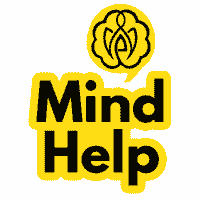Do you sometimes feel misunderstood by your partner or loved ones? Does it feel like the spark is missing in your relationship?
Have you been struggling to make things work lately?
Statistics show that India has the lowest rate of divorce in the world. However, experts have expressed that this might be more indicative of cultural norms and traditions than actual marital satisfaction.
Many Indian families go through several trials and tribulations but hesitate to discuss their issues with an outsider even if their relationships are falling apart.
Sometimes it is only a matter of communicating and being honest with each other. Many times though, issues tend to be more complicated and one is required to look at things from a different perspective.
A relationship and family counselor can be crucial at this point in providing a neutral point of view and helping you and your loved ones develop the interpersonal skills needed to connect in a better way.
How Is Family Therapy Different From Couples Therapy?
While both follow certain common principles and objectives, couples therapy solely involves partners in a relationship with each other whereas family therapy incorporates the entire family, including children and other relatives (in the case of a joint family).
What Can I Expect From Couples And Family Counseling?
It is natural to have inhibitions before confiding in a stranger regarding our most private matters.
Let us help you get on board with couples and family counseling while clearing some doubts you may have about the process.
The counseling room is a safe space. The first thing to know is that everything discussed within the walls of a counselor’s room is confidential and there are no judgments passed.
Your therapist won’t take sides. A therapist gives an unbiased opinion and tries to work towards common goals rather than deciding who is right or wrong.
Everyone’s heard. In a regular family discussion, one person may sometimes get more priority over others. However, with a mediator in the form of a counselor present, every person is allowed an equal chance to express themselves.









